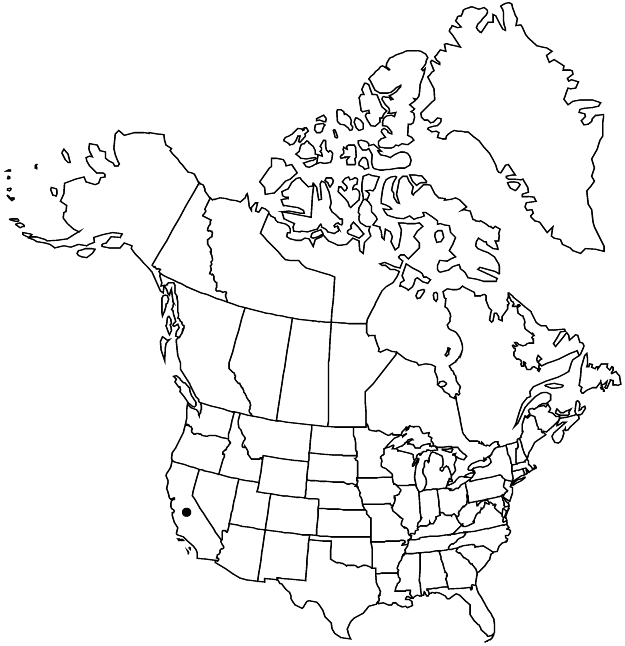Sedum niveum
Bull. S. Calif. Acad. Sci. 20: 53. 1921,.
Herbs, perennial, cespitose, glabrous. Stems (primary) repent, branched, bearing axillary rosettes. Leaves alternate or, rarely, nearly opposite, spreading, sessile; blade dark green to yellow-green, speckled with red, not glaucous, obovate to oblanceolate, subterete, 4.8–9 × 2.2–4.2 mm, base spurred, not scarious, apex rounded or obtuse with minute mucronate appendage, (surfaces papillose). Flowering shoots erect or ascending, simple, 0.5–4.5 cm; leaf blades obovate, oblanceolate, or elliptic-ovate, base short-spurred; offsets not formed. Inflorescences cymes, 2–9-flowered, or flowers solitary, 1–3-branched; branches not recurved, not forked; bracts similar to leaves, smaller. Pedicels absent or to 1 mm. Flowers 5(–8)-merous; sepals divergent or suberect, distinct, lanceolate, oblong-lanceolate, or oblanceolate-elliptic, unequal, 4.4–7.2 × 1.2–1.7 mm, apex acute to obtuse, (sometimes papillose); petals basal 1/3 erect, widely spreading distally, slightly connate basally, white streaked with pink, lanceolate, not carinate, 3.5–10 mm, apex acute with minute mucronate appendage; filaments white, streaked with red; anthers dark red; nectar scales yellow, orange, or pink, stipitate-reniform or subquadrate. Carpels erect in fruit, connate basally, pale brown. 2n = 32, ca. 128.
Phenology: Flowering summer.
Habitat: Quartzite soil, northern slopes
Elevation: (1500-)1600-3000 m
Distribution

Calif., Mexico (Baja California).
Discussion
Sedum niveum occurs in the San Bernardino, Santa Rosa, and New York mountains in California and the Sierra San Pedro Mártir in Baja California; it is unusual in having tuberous, tufted roots rather than fibrous roots.
R. T. Clausen (1975) discussed issues relating to the identity and distribution of Sedum pinetorum, known only from the type collection, with uncertain locality but possibly Pine City, Mono County, California. He considered it conspecific with S. niveum because the fragments available suggested that it had tuberous roots; no similar plants have been found in the vicinity of Pine City or elsewhere in the Sierra Nevada.
Selected References
None.